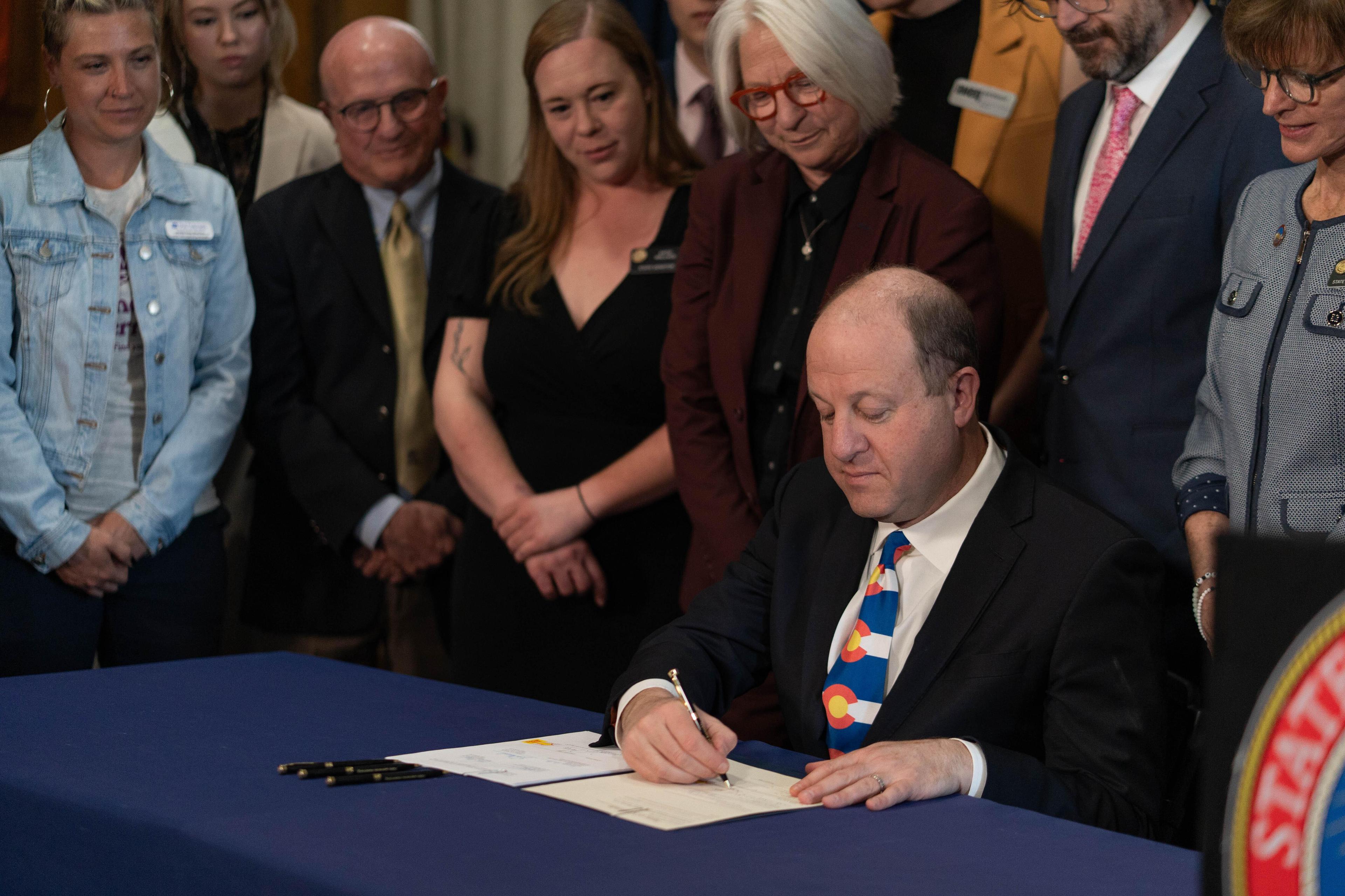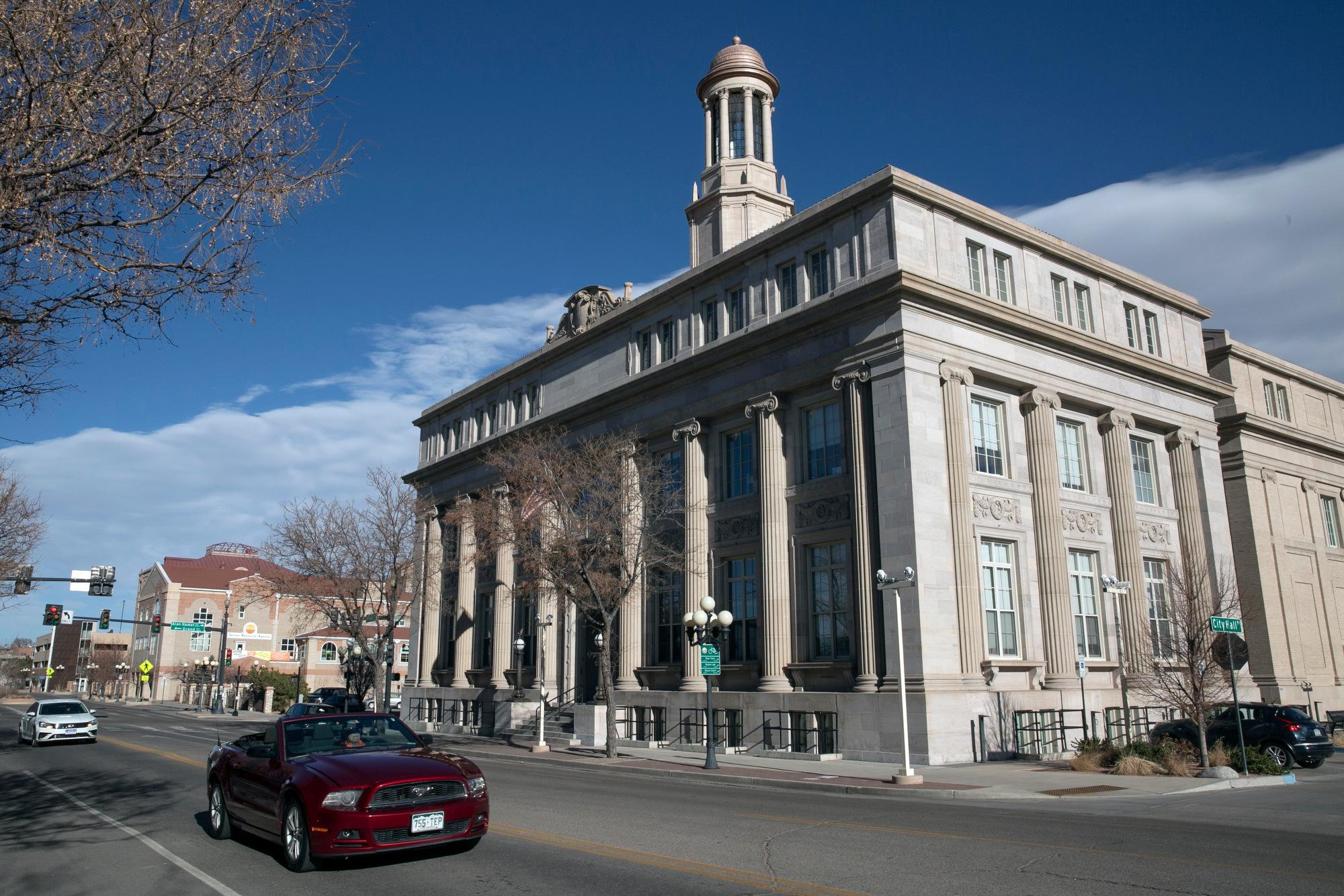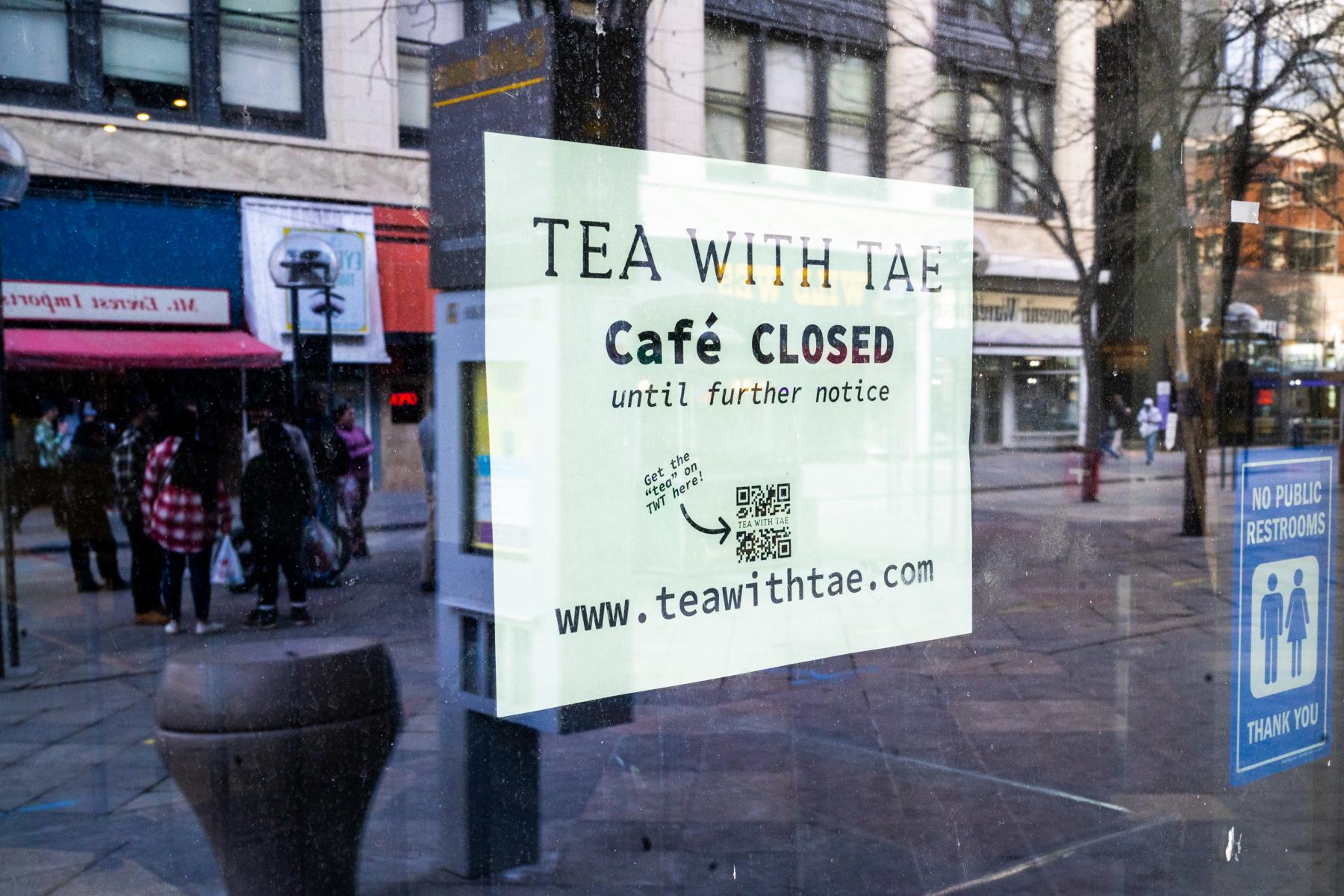
Free rent on the 16th Street Mall in downtown Denver sounds like a pretty good deal. But some businesses are finding that there are catches — namely crime and a lack of security along the mall.
That’s led downtown boosters to make changes to a program that offers businesses rent-free space. The program is an effort to breathe life into areas of the city that are struggling with a glut of empty storefronts, and the changes are meant to address struggles that plagued tenants during the launch of the Downtown Denver Partnership’s retail pop-up program.
One of the biggest changes is that online businesses that haven’t had a storefront before will no longer be able to get their own space, according to Sarah Wiebenson, the director of economic development at the partnership. Instead, there will be a shared retail space at Republic Plaza for those businesses, while standalone stores will be available to people that already run brick-and-mortar shops.
The rationale is that experienced shop owners are better equipped to handle the frequent disturbances that occur downtown, including interactions with people experiencing homelessness.
“It’s definitely a challenge for storefront operators,” Wiebenson said. “What we are committed to in this next round is just really helping people put their best foot forward, and experienced store operators do just have certain ways of preventing situations that might go forward if you don’t know what to look for.”
The partnership launched the second phase of the program this month with funding from federal pandemic aid. The application deadline is March 3. Participants will get at least six months of free rent.
Businesses that joined the first phase had struggles
Tae and Roderick O’Dorisio were part of the first phase. Their online business took off during the pandemic. Tea with Tae sells tea in a subscription service format. And they were excited to have a real storefront for the first time.
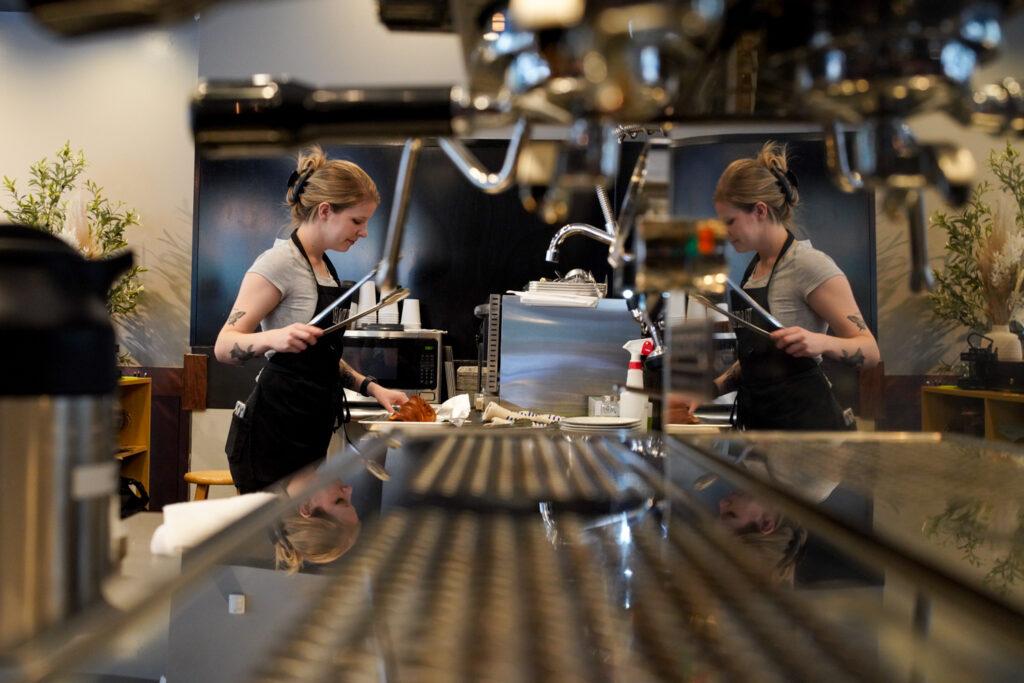
“We could really foster a community in person now,” Tae said just months after opening the space.
They took over a spot that used to be a Starbucks two blocks from the Denver Convention Center in July. It was a rocky six months from there. There were daily incidents with people experiencing homelessness, in particular with people using drugs, Roderick said.
“They're being aggressive either with our customers or employees … making a ruckus and causing people to feel uncomfortable inside the space,” he said.
Then, in November, their best employee quit after two shootings happened outside the store just hours before it opened.
“When she came in and opened the shop up, one of our giant bay windows was completely cracked, like about to burst and shatter because of the bullet hole at the bottom of it,” Roderick said.
It was one thing after another.
“Somebody defecated all over the store,” Tae said.
The O’Dorisios were in regular contact with the 16th Street Mall security team. They were helpful, but ultimately, they’re not law enforcement. The couple also spoke with the police, but it seemed there wasn’t a lot they could do if nobody was in imminent danger.
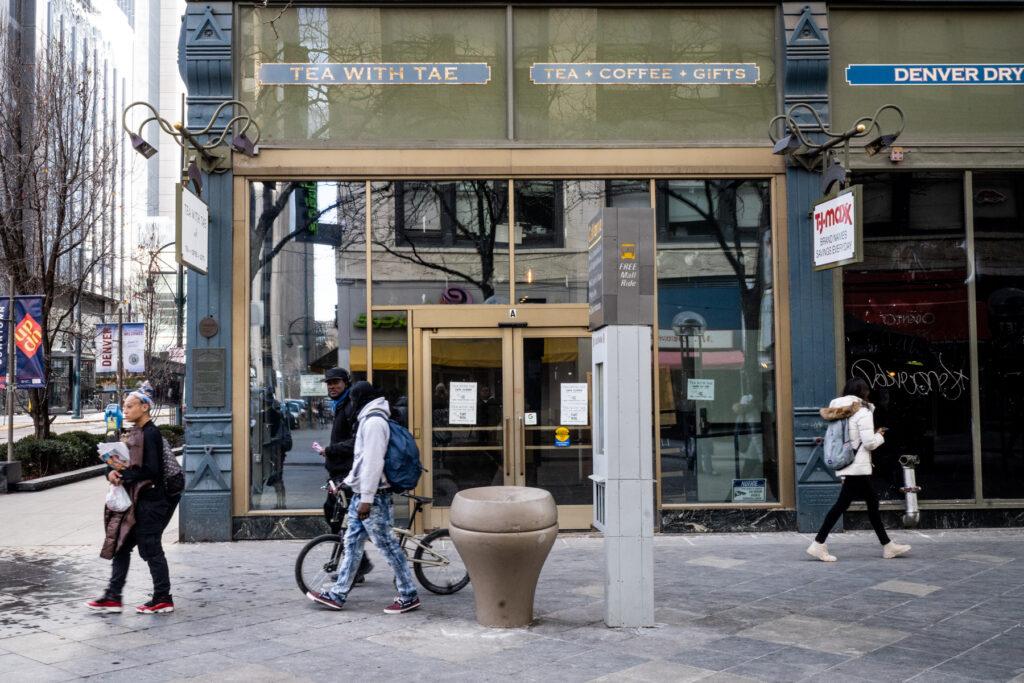
“When complaints of non-violent drug offenses come into the Emergency Communications Center, they are prioritized according to a standard protocol, and the response time to the location depends upon the number of higher priority calls at that time and the number of available officers. That does not mean that the department takes these calls lightly,” the Denver Police Department said in an emailed statement.
Aside from the security problems, the store wasn’t really making money. Black Friday, the biggest shopping day of the year, was a bust. The O’Dorisios set up booths at holiday fairs at Cherry Creek and a few other locations. The downtown storefront was the worst performer.
“It was actually shocking to see how few people showed up on that day to shop,” Roderick said.
They closed the store in December — a couple of months before the deal on free rent expired. For now, they’ll be focusing on the online business and temporary setups like farmers markets, Tae said. They’d like to try to open a storefront again, eventually.
“We're definitely going to do it [again]. Just not there,” Roderick said.
City and business leaders are still trying to revive downtown
These kinds of experiences are getting in the way of efforts to revitalize parts of downtown Denver that haven’t regained ground lost during the pandemic. A lot of office buildings are still half empty, and concerns about homeless encampments and crime are only getting worse. The massive construction project on 16th Street Mall isn’t making things easier for that part of town.
In November, city, state and federal authorities announced plans for the Downtown Denver Action Partners, a public safety initiative. The effort aims to hire more police officers citywide and reduce call response times, among other things.
“It is critical that our downtown’s recovery picks up the pace,” Denver Mayor Michael Hancock said during a press conference about the initiative.
For the pop-up program, the partnership is putting more money into security for this round, according to Wiebenson. There will be workshops on safety, and additional cash for setting up stores in a way that minimizes the potential for crime, she said. That can be something as simple as adding strategically placed lighting.
“We'll do an assessment with each of the entrepreneurs who are placed into the next round of pop-up Denver storefronts, where we can look at the design of their space,” Wiebenson said.
It remains to be seen what kinds of retailers will take up the partnership’s offer of free rent this time around. But basically, anything is better than a bunch of empty space.
“If we could get more foot traffic downtown, that vacuum will be eliminated and we will have a cleaner, safer, more vibrant feeling,” Wiebenson said.
More Colorado business and economic news:
- Colorado saw a lot of businesses open at the end of 2022 — and a lot close, too
- Festivals, conferences — even weddings — are still getting pandemic aid money as Colorado looks for travel rebound
- Economic pessimism persists among Colorado’s businesses, even as unemployment and GDP outpace expectations
- Prices for consumer goods are down in Denver, but inflation remains a worry as regulators eye more interest rate increases

